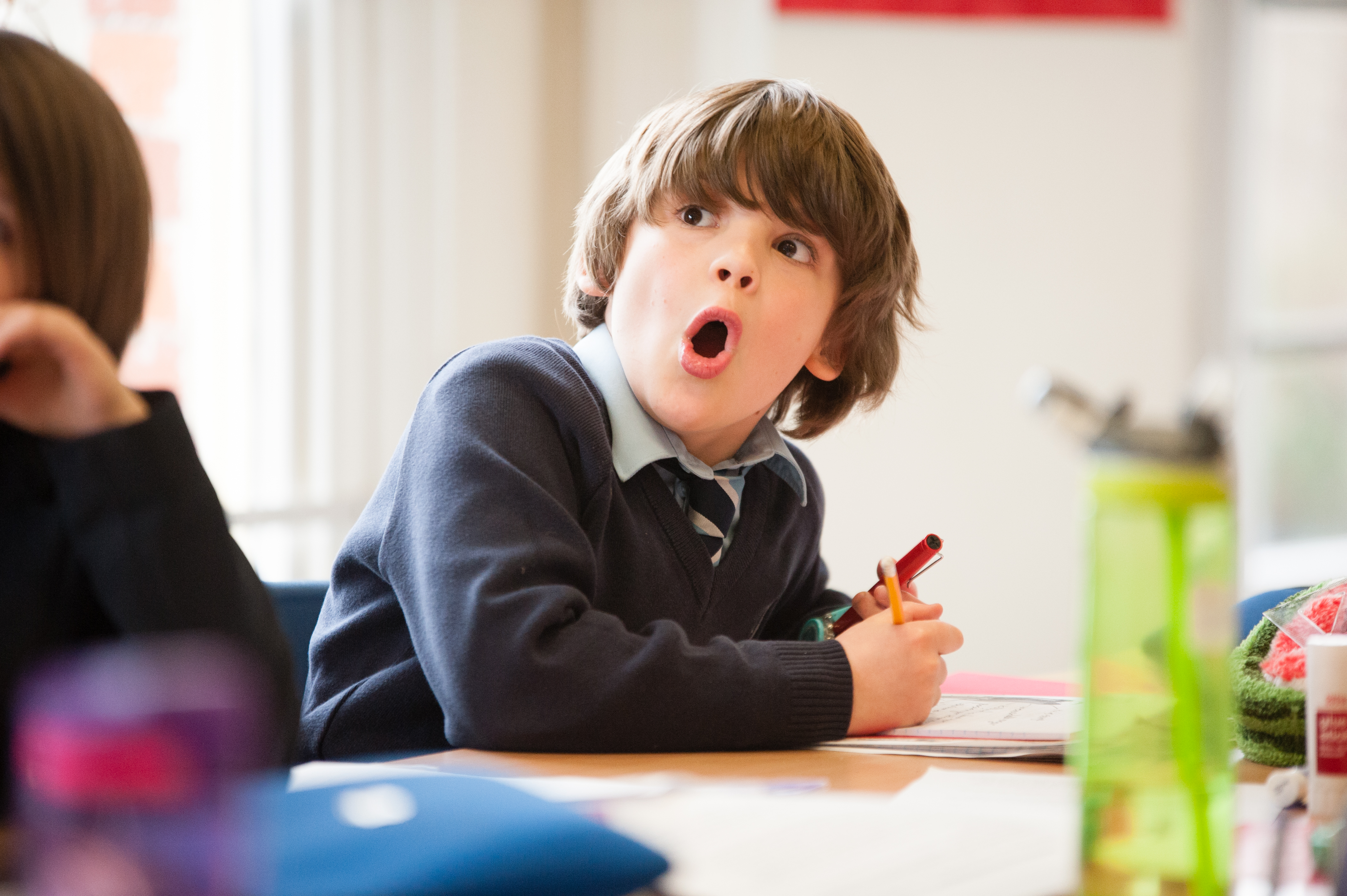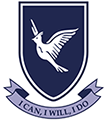Curriculum
We pride ourselves on the quality of our teaching. Our staff are all experienced professionals who are totally committed to the Hopelands ethos and who believe that to nurture each child is to build confidence and a love of learning. We successfully combine traditional teaching of core subjects - English, Science, Mathematics, Geography and History - with a modern approach to new subjects such as Verbal Reasoning, Information and Communication Technology and Design Technology.
Small class sizes and dedicated specialist teachers ensure that the needs of all pupils are met both academically and socially. We aim to inspire our children in all aspects of life and show them that the school motto “I Can, I Will, I Do” can lead them to being happy, successful and confident young people of the future. We focus on encouraging enthusiasm and a sense of purpose in all children. Children participate in regular field trips, activity holidays and sports matches.
We have specialist teachers in English, French, science, mathematics, music, art, dance, drama and PE. We have won several awards at the Cheltenham Festival in recent years with performances from our choir and drama groups.

Hopelands offers a wide variety of teaching strategies and approaches to our English curriculum. From the Early Years through to Year 6, our pupils are encouraged to read quality texts that will ignite their enthusiasm and develop their flair and passion in speaking, listening, reading and writing.
We celebrate the spoken world through choral poetry, modern and classic poetry and Shakespeare. We regularly perform in assemblies to each other and to our parents. Cross curricular writing opportunities are enhanced by regular field trips, museum visits, guest speakers and drama workshops.
Maths is taught by the form teacher at Key Stage 1 and specialist teachers at Key Stage 2. We believe that maths is a broad subject that goes beyond the learning of facts and processes. We encourage children to be independent, creative thinkers and problem solvers. Maths investigations are included regularly in lessons and children accept that mistakes are part of learning. Children are encouraged to take risks and explore their potential. Our belief is that everybody can enjoy and be good at maths.
We consider science to be a core subject. It is taught for two hours per week by form teachers at Key Stage 1 and by specialist teachers at Key Stage 2. Our aim is to equip children for their next steps in life by offering a wide range of experiences in the three core science subjects - physics, chemistry and biology - beyond national curriculum requirements. Children do practical work and are encouraged to work scientifically. We frequently take part in external science workshops, challenges and demonstrations.
Geography
We aim to provide high quality geography education which inspires curiosity and fascination about the world and its people. It should equip pupils with knowledge of diverse places, people, resources and natural and human environments, together with a deep understanding of the Earth's key physical and human processes.
We use a Geography scheme called 'Oddizzi' here at Hopelands, which enables us to communicate with other 'Oddizzi' schools around the world, using the safe 'ClassPals' virtual postcard messenger. This is one way in which we work to develop our pupils' skills of enquiry, dialogue and digital citizenship.
In our Geography lessons, we use 'What If' challenges, which are designed to help pupils achieve the mastery level in the National Curriculum through reasoning and higher order thinking skills, encouraging pupils to share their deeper understanding based on a geographical scenario.
History
At Hopelands Preparatory School we want our pupils to be inspired to know more about Britain's past and that of the wider world. Knowledge of Britain's past can help them to understand the challenges of our own time. It engages pupils in questions about people and events in the past and helps pupils to understand the present and prepare them for the future!
The programme of study for history states that ‘History helps pupils to understand the complexity of people’s lives, the process of change, the diversity of societies and relationship between different groups, as well as their own identity and the challenges of their time.’
At Hopelands a wide range of sports are taught including netball, football, tag rugby, basketball, hockey, lacrosse, cross country, circuit training, swimming, gymnastics, tennis, cricket and athletics.
Hopelands competes in many tournaments and matches at both district and county level during the year. We are keen to make sport inclusive for all and we enter a variety of team and individual events from football and rugby competitions to mountain biking and orienteering events. Recent highlights of success have been reaching the cross-country national finals and a 'Player of the Tournament' award at a large netball festival for a Hopelands pupil.
At the heart of our sports teaching is the consistent focus, using fun techniques, on foundation work. This ensures that physical and sporting development, interlinked through a wide range of sports, will continue not only while at Hopelands but on through senior school.
We enjoy nurturing each child’s self–belief and their growing self–awareness of both their physical and mental strengths and weaknesses. We take pride in each pupil’s individual progress and their journey through sport.
The Art curriculum at Hopelands is organized on a project basis from a themed platform that aims to inspire new ideas, context and continually develop/extend/enhance existing skills. It is taught for a one hour lesson each week and is taught by an Art Specialist. Central to every project are influential artists and by encouraging personal responses through individuality and interpretation, every project outcome is happily unique.
Our approach involves children using materials to make artwork in two or three dimensions. These skills are developed through the visual elements: line, shape, form, tone, colour, pattern and texture and can be anything and everything from Matisse inspired cut outs in Year 1, to Tiffany inspired stained glass style paintings in Year 4 to Op Art Dazzle ships in Year 6 - plus everything else in-between!
We encourage all children to participate in dance and Years 2–4 receive an hour of dance tuition per week covering a wide range of dance styles. The children learn to express themselves through dance both individually and in groups. We are inspired by the history driving the dance genre.
We dance in our Christmas and Summer productions and regularly perform pieces created.
At our after school dance club, pupils can contribute their own ideas and choreography.
ICT at Hopelands is taught throughout KS1 and KS2; with an increased focus on cross curricular skills and digital literacy within all year groups and subjects. Children of every age are encouraged to safely use computers for independent presentations, topic research, data handling and communication.
E-safety is at the core of our curriculum and we ensure pupils are aware of the dangers when using the internet and online apps. To support this, we actively participate in Safer Internet Day and have strong links with local Police initiatives providing regular in-class workshops.
We recently opened a code club, whereby KS2 pupils are encouraged to explore and further develop skills within Scratch, HTML/CSS and Python.
Using an activity-focused approach, our lively DT lessons give pupils opportunities to create, innovate, design, make and evaluate a variety of well-crafted products. Pupils are taught technical skills and craftsmanship as they execute practical tasks, developing confidence and practical skills every step of the way.
Specific Design and Technology projects are undertaken by both class teachers and a DT specialist and the project focus follows the same path for all pupils: the process of generating ideas, realising them in some material form, and being able to talk about what was done and why. Innovation and imagination are hugely important in DT, and pupils enjoy the challenge of working to a design brief whilst putting their own little bit of practical design magic into every stage!
RE
Through a positive and caring environment, we provide the opportunity for every child to reach their full potential in Religious Education. We embrace world faith values as we explore the history, traditions and cultural aspects of Christianity, Islam, Hinduism, Judaism, Sikhism and Buddhism.
We actively encourage pupils to personally reflect upon a multi-faith perspective and identify fundamental British values as they progress through the RE curriculum at Hopelands. They do this by exploring how individuals and communities make meaning and sense of their lives through the major religions of the world, encouraging pupils to learn about, understand and respond to the important and ultimate questions of life. RE is taught in such a way that it inspires pupils to explore, develop and affirm their own choices and values and have respect for the faith, beliefs and values of others.
PHSE
At Hopelands, we believe that education in PSHE and citizenship enables children to become healthier, more independent and more responsible members of society. We encourage pupils to play a positive role in contributing to the life of the school and the wider community and we help children develop their sense of self-worth by teaching pupils how society is organised and governed, and the important part they play within every aspect of life. By teaching pupils about their rights and responsibilities pupils learn to appreciate what it means to be a positive member of a diverse and multi-cultural society and as we teach PSHE we do everything we can to make sure that children have the skills and knowledge to ensure they are happy, healthy, stay safe, enjoy life and fulfil their dreams.
Through specialist teaching we aim to provide all pupils with a rich musical experience through performing, composing, listening to and appraising music. We have won several awards at the Cheltenham Festival in recent years with performances from our choir and musicians. Children at Hopelands enjoy their music lessons and especially the performances that they are involved in within school and the local community.
During Key Stage 2 all children will experience whole class ensemble tuition either on the ukulele or recorder.
In addition to this all pupils have the opportunity to learn a range of instruments including drums, woodwind, guitar and piano through 1-1 or small group lessons.
Our weekly French lessons provide an educational, social, and cultural experience which is enriching for all children. We follow a progressive scheme of work which allows pupils to build upon their knowledge and to experience a real sense of achievement from using and mastering key phrases.
We aim to develop solid foundations in key language learning skills, to prepare them for their next stage of language learning and to instil in them a positive curiosity about foreign languages. Pupils are encouraged to become language detectives; to spot language patterns and explore the similarities and differences between the French language and English. They are guided to develop their understanding of how language works, both that of their mother tongue and of the foreign language and are given opportunities to delve into the culture of others whilst reflecting upon their own.
Children in Reception, Year 1 and Year 2 are introduced to French through songs, stories, poems, and games. Pupils explore the sounds of the French language, and the focus is on their listening and speaking skills to prepare them for Key Stage 2.
Through a balance of speaking, listening, reading, and writing activities, pupils in Years 3-6 develop their communication and literacy skills which form the building blocks for future language learning. They are guided through French phonics which help them to speak confidently, and they learn to share their opinions about familiar matters in speech and writing. Pupils link the spelling, sound and meaning of words and explore aspects of French grammar.
